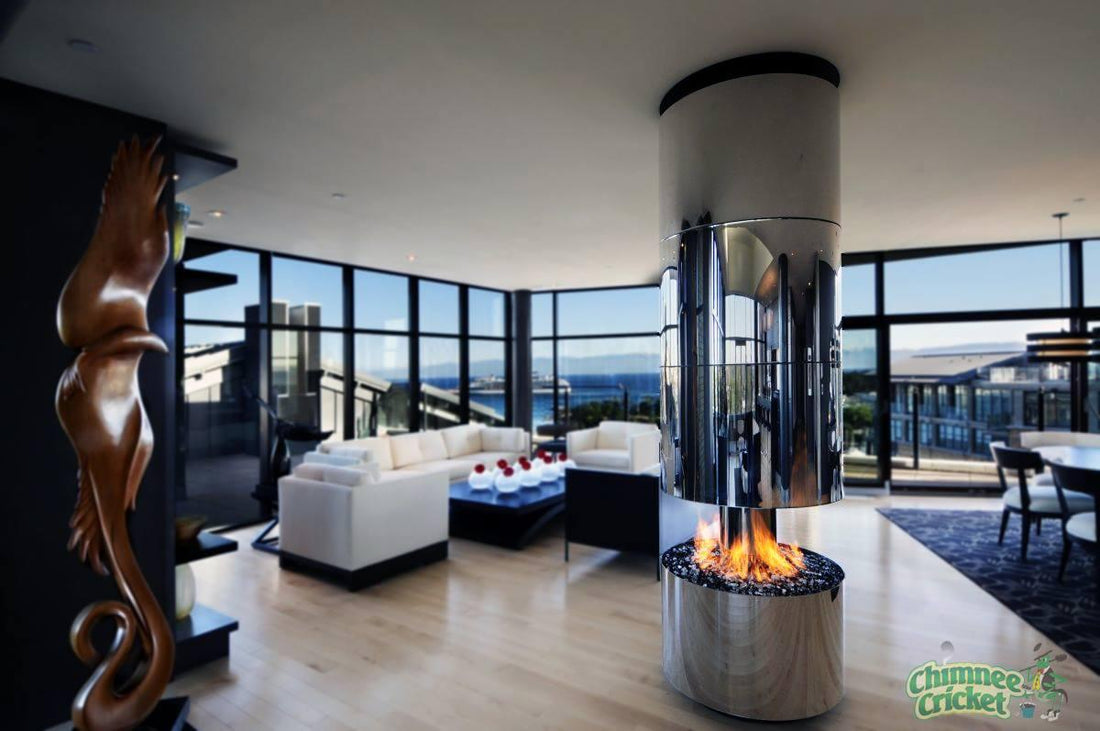With so many of us today watching home network shows, it's becoming more common for us to improve our own fireplace’s efficiency and aesthetics. Use this as an outline when moving through the phases of any project.
There are some important aspects when selecting a contractor for this type of project.
Budget: Regardless of your knowledge of the industry, have a threshold of what you’re not willing to surpass.
Functional or Glamour - Be on the same page with your partner or spouse. Is this a project to improve efficiency, performance, bells, and whistles, or safety? There's a huge variety within the industry right now on both traditional and contemporary units, many of which can be upgraded with "options" (at a cost.) It is important to do your research prior to accepting proposals. Know the basics of what type of gas system you’re thinking about (Direct Vent, Vented, Ventless) because it will save you a lot of hassle in the long-run.
Meeting Contractors (2-3 quotes) - A good place to start is the NFI (National Fireplace Institute) and CSIA (Chimney Safety Institute of America.) These are two nationally recognized institutions in which chimney and fireplace industry professionals have the knowledge and expertise. Pay attention to the attire of the individual representing the company - clothing, appearance, vehicle (garbage falling out when he opens the door,) etc. are all tell-tale signs of what’s to come. Furthermore, there's something to be said with a "good-looking" company vehicle; it shows the company invests in their image and therefore your home. If they care about their own person’s and vehicle’s appearance, chances are, they are going to care about how they leave your home’s appearance upon completion of the job.
Depending on the type of project, your contractor may need a Building, Mechanical, Residential or Commercial Contractor’s License or both to complete your project. Make sure the person doing the work is an employee of a company that holds the proper licensure to match the type of work required for your project.
The Little Things - Request references of similar projects (see before/after photos.) Check insurance (not expired...you'd be surprised,) Workman’s Compensation Insurance, General Liability Insurance and, most importantly, check that the builder has a mechanical license (or any other type of license) and make sure it is that of an individual who actually works for the company. It happens daily that companies will have a "friend" or other contractor pull the required permits to complete a project. Please take the time to check the city permit for the name that the company used. If you have any concerns, contact your local municipality.
Deposits - It may be of some surprise, but you should take no issue with any contractor requesting a deposit prior to accepting a project. As a contractor myself, I can appreciate and better understand all the elements of why a deposit would be required. For example, a contractor needs to purchase materials, needs to pay for permits in advance and, most significantly, a deposit ensures to the contractor that the customer is serious. Factors when leaving a deposit (assuming you've already vetted them) request a start date (in writing) also have it in the agreement that if the project has not begun, that the deposit can be returned upon request. A written and signed contract between both parties legally assures and protects both the contractor and the client. Use a credit card. This way, if there is a discrepancy, that way you have some financial recourse … “insurance,” if you will. You can always contact your credit card company and dispute the charges in the most extreme cases and, trust me, they will fight on your behalf.
Pre-Project Meeting - A Pre-Project Meeting and In-Person Estimate is a vital phase in all successful projects. At this meeting, all parties should be present (customer, salesmen, lead installer, designer, etc.) to review all aspects of said project such as what materials will be used and when to expect them to come in. What products will be installed for what installation along with the full site survey of what's to be expected, inquiry on the current timeframe and how long the project should last from beginning to completion. At this time, it's also wise to request a copy of the permit when the permit comes in. Also ask about potential Inspection Dates and what is to be expected. Any changes to the original project agreement should have a "change-order" made with a clearly revised plan in writing. This will help avoid later confusion.
Final Walk-Through - Prior to paying a balance due upon completion, it's in the customer’s best interest to perform a final walk-through with the lead installer to guarantee everything has been completed properly and to your standards. At this time, the city or municipality should have also completed their final inspection, as well. Any required alterations should be completed prior to making a final payment.
Don't be afraid to ask questions and do so often.
Lastly, good luck out there and enjoy your amazing, new fireplace, as it will probably be the focal point of your home!
Happy Burning!

